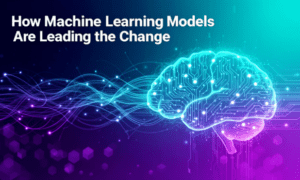Welcome to the era of AI revolution! We stand witness to incredible technological innovations that are reshaping industries like never before. Among these groundbreaking advancements, artificial intelligence applications have emerged as the game-changers across numerous sectors. Today, we dive deep into exploring how these extraordinary AI apps are transforming healthcare, finance, and more. Get ready to be amazed as we uncover the futuristic impact of intelligent algorithms on our everyday lives – from enhancing patient care in hospitals to revolutionizing financial services – it’s time to embrace this exciting digital transformation!
Introduction: Overview of the concept of AI and its impact on industries
In recent years, Artificial Intelligence (AI) has gained immense popularity and attention from various industries as it promises to revolutionize the way we live and work. AI refers to computer systems that can perform tasks typically requiring human intelligence, such as visual perception, decision-making, speech recognition, language translation, and more. With advanced algorithms and machine learning techniques, AI has made significant progress in analyzing vast amounts of data and finding patterns that humans may not be able to identify.
The potential applications of AI are virtually endless, with the ability to transform a wide range of industries such as healthcare, finance, manufacturing, retail, transportation, and more. The disruptive power of AI is already being witnessed in many sectors as organizations strive to capitalize on its benefits for their businesses.
Explanation of AI apps and their features
Artificial Intelligence (AI) is an advanced technology that enables machines to simulate human intelligence through various algorithms and data processing techniques. In recent years, AI applications have been rapidly evolving and revolutionizing industries in ways we never thought possible. From healthcare to finance, these AI-powered apps are transforming the way businesses operate and making our lives easier.
In this section, we will delve into the explanation of AI apps and their features. By understanding how these apps work, we can gain a better understanding of their impact on different industries.
1. Machine Learning:
At the heart of most AI applications lie machine learning algorithms that enable computers to learn from data without being explicitly programmed. This means that these programs can recognize patterns, make predictions, and improve over time without human intervention. For instance, in healthcare, machine learning algorithms are used to analyze patient data and make accurate diagnoses based on symptoms.
2. Natural Language Processing (NLP):
NLP is a subset of AI that focuses on enabling machines to understand human language in written or spoken form. This technology has enabled the development of virtual assistants such as Siri or Alexa, which can process natural language queries and provide relevant responses.
3. Image Recognition:
Another essential feature of AI apps is image recognition – the ability to identify objects or people within images or videos accurately. This technology has been extensively used in facial recognition software for security purposes but also has potential uses in medical imaging for disease detection.
4. Predictive Analytics:
AI-powered predictive analytics use historical and real -time data to identify potential future outcomes. These algorithms can be applied in various industries, such as finance, to predict stock market trends or in retail to forecast consumer demand.
5. Robotics:
AI and robotics go hand in hand as robots are the physical embodiment of AI technology. These intelligent machines can perform tasks autonomously by processing data from sensors and making decisions based on algorithms. In manufacturing, robots have significantly improved efficiency and productivity by performing complex tasks with speed and precision.
6. Personalization:
AI-powered apps also offer a more personalized experience for users by analyzing their behavior and preferences. For example, streaming services like Netflix use AI algorithms to suggest new content based on a user’s viewing history.
7. Automated Decision-Making:
Finally, one of the most significant features of AI apps is their ability to make automated decisions without human intervention. This is particularly useful in industries where speed and accuracy are crucial, such as finance or transportation.
Advantages of using AI apps in various industries (healthcare, finance, etc.)
Advancements in artificial intelligence (AI) technology have led to the development of highly sophisticated and versatile AI applications that are revolutionizing various industries. From healthcare to finance, these AI apps are transforming processes, improving efficiency, and enhancing decision-making capabilities. In this section, we will explore the advantages of using AI apps in some key industries.
1. Healthcare: One of the most significant benefits of using AI apps in the healthcare industry is improved diagnosis accuracy and efficiency. These applications can analyze vast amounts of data from medical records, lab reports, and other sources to identify patterns and make accurate diagnoses. This not only saves time but also reduces the chances of error in diagnosis. Additionally, AI-powered chatbots and virtual assistants can help with patient triage, appointment scheduling, and provide timely medical advice without human intervention.
Furthermore, AI apps can assist healthcare professionals in predicting potential health risks for patients based on their medical history and genetic makeup. This proactive approach enables doctors to take preventive measures and offer personalized treatment plans to patients.
2. Finance: With increasing volumes of data generated by financial transactions every day, there is a growing need for more efficient analysis for decision making within the financial sector. AI-powered applications can analyze large sets of financial data at an unprecedented speed accurately. They can detect fraud patterns or anomalies in real-time that go unnoticed by manual review processes.
Moreover, these apps also help automate routine tasks such as account reconciliation or invoice processing, saving time for employees to focus on more critical tasks that require human judgment. Additionally, AI-powered chatbots can assist customers with simple queries and provide personalized financial advice based on their financial data.
3. Education: In the education industry, AI apps are helping to streamline administrative tasks for teachers and administrators, such as grading papers and creating lesson plans. This automation saves time for educators, allowing them to focus on developing more engaging and personalized learning experiences for students. Furthermore, AI-based educational platforms can analyze student data to identify areas of improvement and provide tailored learning materials accordingly.
AI apps also facilitate efficient communication between students and educators through virtual assistants or chatbots that can answer basic queries related to coursework or assignments. Moreover, AI-powered language translation tools make it easier for students from diverse backgrounds to interact and learn in their native languages.
4. Retail: AI-powered applications in the retail industry are enabling businesses to deliver a personalized shopping experience for their customers. These apps use data from customer interactions and purchase history to offer product recommendations tailored to individual preferences. This highly targeted approach not only increases customer satisfaction but also boosts sales for retailers.
Furthermore, AI apps also help retailers optimize inventory management by predicting demand and automating supply chain processes. They can also analyze consumer trends and sentiments from social media and other sources to make informed decisions on marketing and product development strategies.
5. Manufacturing: AI-powered applications are helping manufacturers improve production efficiency and reduce costs by identifying patterns and anomalies in data from sensors and machines. This enables predictive maintenance, minimizing downtime and improving overall equipment effectiveness. Furthermore, these applications can also help in quality control processes, detecting defects in products more accurately than human inspectors.
Moreover, AI apps can analyze supply chain data to optimize inventory levels, reduce wastage, and improve demand forecasting. They can also assist with automating routine tasks such as scheduling and route optimization for efficient delivery of products.
Real-life examples of successful AI app implementation in different sectors
AI technology has been expanding its reach in various sectors across industries and transforming the way operations are conducted. The successful implementation of AI apps in different sectors is further proof of its impact on businesses and societies. Here are some real-life examples of how AI apps have revolutionized industries such as healthcare, finance, and more.
1. Healthcare:
• IBM Watson Health: This AI-powered app created by IBM has revolutionized the healthcare industry by assisting doctors in diagnosing diseases accurately. It uses natural language processing to scan through medical records, research papers, and patient information to provide treatment recommendations.
• CLEW: This app uses predictive analytics to monitor vital signs and predict potential health risks for patients in intensive care units, reducing the workload for medical staff and improving patient outcomes.
2. Finance:
• Paypal: The popular payment gateway utilizes AI algorithms to detect fraudulent activities and prevent financial frauds. It also provides personalized solutions for customers based on their spending patterns.
• ZestFinance: Using big data and machine learning algorithms, this app analyzes credit risk factors that traditional scoring methods may miss out on. This has enabled lenders to make smarter decisions while minimizing the risk of default.
3. Education:
• Squirrel AI Learning: By personalizing learning paths for students using adaptive assessment strategies, this Chinese education tech company has improved students’ academic performance significantly.
• Duolingo: Available as a mobile application, Duolingo uses gamification techniques powered by artificial intelligence to help users learn new languages effectively.
4 . Retail:
• Amazon Go: The cashier-less shopping experience in Amazon’s brick-and-mortar stores is powered by AI. Using computer vision and deep learning algorithms, the app tracks customer movements, identifies products selected, and automatically charges them to the customer’s Amazon account.
• Stitch Fix: This online personal styling service uses data collected from customers’ style preferences, feedback, and other metrics to recommend personalized clothing items for each user.
5. Transportation:
• Tesla Autopilot: This autonomous driving feature in Tesla cars employs AI to analyze road conditions and make real-time adjustments to the car’s speed, steering, and braking.
• Uber: The ride-hailing app uses AI algorithms to optimize routes and calculate fares based on factors like traffic patterns and demand.
Potential challenges and limitations of AI apps
As with any emerging technology, there are bound to be challenges and limitations when it comes to AI apps in various industries. While the potential benefits of using these apps are numerous, it is important to also consider the potential challenges and find ways to address them.
One major challenge that AI apps face is the issue of data privacy and security. These apps rely heavily on large amounts of data in order to function effectively. However, this raises concerns about who has access to this data and how it is being used. In industries like healthcare where sensitive patient information is involved, maintaining strict privacy standards for patient data becomes crucial. Developers of AI apps must ensure that proper safeguards are in place to protect users’ data from cyber attacks or unauthorized access.
Another limitation of AI apps is their tendency towards bias. Since a lot of these apps use machine learning algorithms, they learn from existing datasets which may contain inherent biases or errors. This can result in discriminatory outcomes and hinder the fairness of decision making processes within these industries. To combat this, developers need to constantly monitor and review their algorithms for any biases and make necessary adjustments.
The complexity and cost associated with developing AI apps can also pose a significant challenge for businesses looking to adopt this technology. The development process involves sophisticated coding techniques and advanced technology infrastructure, making it costly for many companies without extensive resources. This can make it difficult for smaller businesses or startups to incorporate these AI solutions into their operations.
Future possibilities for AI app development and advancements
Possible advancements in AI app development and its potential impact on various industries are constantly being explored by developers and experts in the field. These future possibilities not only excite and intrigue us, but also give us a glimpse into the vast potential of AI technology.
One of the main areas where AI apps are expected to have a significant impact is healthcare. With rapid advancements in machine learning algorithms, AI apps can be used for disease detection, personalized treatment plans, and even medical diagnostics through image recognition. This has the potential to revolutionize patient care by providing faster and more accurate diagnosis and treatment options.
In addition to healthcare, finance is another industry that stands to benefit from further developments in AI app technology. Banks and financial institutions are already utilizing artificial intelligence for tasks such as fraud detection, risk assessment, and investment management. As algorithms become more sophisticated and data analysis becomes more efficient, we can expect to see even greater improvements in these areas. Furthermore, smart virtual assistants powered by AI could also assist customers with their financial transactions and provide personalized recommendations based on their spending habits.
Another area that could see major growth with advancements in AI app development is education. Intelligent tutoring systems using machine learning algorithms could personalize lesson plans for students based on their individual needs or learning styles. This could greatly improve student engagement and retention rates while reducing teacher workload. Additionally, language translation tools equipped with natural language processing abilities could make foreign language learning easier than ever before.
Conclusion
In conclusion, AI apps are truly revolutionizing various industries in numerous ways. With their ability to analyze and interpret vast amounts of data in real-time, they have the potential to transform healthcare by improving patient care and diagnosis accuracy. Similarly, AI apps are transforming finance by automating routine tasks and identifying trends that can lead to informed decision-making. And these are just a few examples – as technology advances and more innovative applications are created, we can only imagine how many more industries will be transformed for the better with the help of AI. The potential is limitless, and it’s an exciting time to witness these transformations firsthand.



































